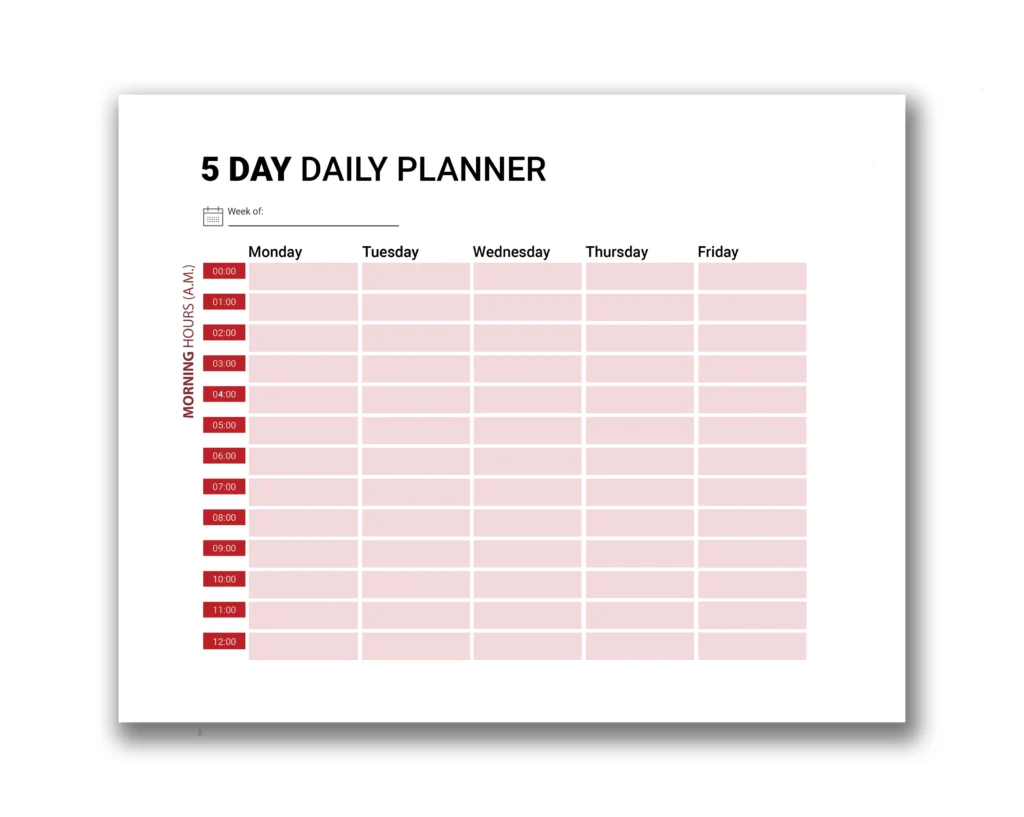Master Healthcare Practice Time Management with 5 Simple Tips

Efficient time management is vital in healthcare, where seconds matter. It’s not just a term; it’s a skill that impacts patient care, operations, and success. Handling appointments, records, and tasks demands precision, making time management indispensable for healthcare providers, managers, and workers. It boosts productivity, minimizes stress, and aligns patient care with goals.
This article equips healthcare professionals with tailored time management strategies. From setting priorities to cultivating a time-conscious culture, we offer actionable insights that seamlessly integrate into daily routines. You’ll grasp time’s significance and gain practical approaches to elevate your practices.
Understand Your Priorities
Define Your Goals and Objectives
Begin by taking a moment to define your overarching goals and objectives. Whether providing exceptional patient care, streamlining administrative processes, or advancing your healthcare career, having clear goals helps you channel your efforts effectively. By setting well-defined goals, you create a roadmap that guides your daily tasks toward meaningful outcomes.
Identify Your Most Important Tasks
In the flurry of healthcare activities, it’s crucial to identify your essential tasks that directly impact patient well-being and practice success. By recognizing these vital responsibilities, you can ensure that you’re allocating your time and energy where they are most needed. This targeted approach allows time to be squandered on less impactful tasks.
Determine What Tasks You Can Delegate
As a healthcare professional, your plate can quickly become overcrowded with tasks of varying importance. Recognize that you don’t have to do everything yourself. Specific tasks, mainly routine administrative chores, can be effectively delegated to capable team members. Delegation not only lightens your workload but also empowers others and promotes a collaborative environment, ultimately enhancing overall practice efficiency.
Develop a Schedule
Create a Daily, Weekly, and Monthly Schedule
Craft a well-structured schedule encompassing daily, weekly, and monthly timeframes. Allocate specific time blocks for patient consultations, administrative tasks, and personal commitments. This approach ensures a clear roadmap and prevents tasks from piling up unexpectedly.
Use a Calendar or Scheduling Software
Leverage the power of technology by adopting a reliable calendar or scheduling software. These tools help you stay organized, set reminders for important tasks, and synchronize your schedule across devices. Streamlining your scheduling process saves time and minimizes the risk of overlooking essential responsibilities.
Schedule Regular Breaks to Avoid Burnout
Remember, sustained performance requires adequate self-care. Incorporate regular breaks into your schedule to recharge and prevent burnout. Even brief moments of relaxation can significantly enhance your focus, productivity, and overall well-being. By prioritizing breaks, you ensure you’re at your best for patients and yourself.
Streamline Your Workflow
Automate Tasks When Possible
Embrace automation to eliminate manual, repetitive tasks from your workflow. Utilize technology to automate appointment reminders, billing processes, and routine communications. This reduces the risk of errors and frees up your time for more impactful patient interactions and strategic decision-making.
Use Templates and Checklists to Save Time
Templates and checklists are your time-saving allies. Create standardized templates for common documentation, such as patient forms and reports. Develop checklists to ensure everything is noticed during critical procedures. These tools minimize the need for reinventing the wheel and maintain consistency in your work.
Adopt Efficient Communication Methods
Effective communication is the cornerstone of healthcare collaboration. Embrace efficient communication methods, such as secure messaging platforms or electronic health records, to share information seamlessly. Swift and accurate communication enhances patient care and prevents delays caused by outdated communication channels.
Manage Interruptions and Distractions
Identify Common Sources of Interruptions
Recognize the usual suspects that disrupt your workflow. These can include phone calls, impromptu meetings, or frequent inquiries. By pinpointing these sources, you can take proactive steps to minimize their impact on your productivity.
Develop Strategies for Minimizing Interruptions
Craft strategies tailored to counter interruptions effectively. Set designated times for returning phone calls or holding meetings, allowing you to protect larger time blocks for focused tasks. Communicate your availability to colleagues so they understand when it’s appropriate to approach you.
Manage Distractions, Such as Email and Social Media
Email and social media can be productivity pitfalls. Allocate specific times to check and respond to emails rather than letting them constantly disrupt your workflow. Likewise, limit social media use during work hours to maintain concentration and prevent unnecessary diversions.
Build Time Management into Your Culture
Foster a Culture of Accountability
Establish a culture where everyone takes responsibility for their time. Encourage team members to set clear goals, prioritize tasks, and track their progress. When individuals are accountable for managing their time effectively, it creates a collaborative environment that values efficiency.
Encourage Open Communication About Time Management
Promote open conversations about time management among your team. Share tips and insights on how each member optimizes their workflow. This exchange of ideas can lead to discovering new strategies and fostering a sense of collective improvement.
Provide Training and Support to Staff Members
Invest in training sessions that focus on time management skills. Equip your staff with techniques for setting priorities, utilizing tools effectively, and handling interruptions. Providing the necessary support empowers your team to excel individually and as a cohesive unit.

Time-Blocking 5-Day Daily Planner Worksheet – Download or Print today!
Conclusion
Recap of the Tips Covered in the Article
In this article, we’ve explored a range of actionable tips tailored for healthcare providers, practice managers, and healthcare workers to master time management. We’ve covered defining priorities, creating efficient schedules, streamlining workflows, managing interruptions, and cultivating a time-conscious culture.
Final Thoughts on the Importance of Time Management in Healthcare Practice
Time management isn’t a luxury; it’s a necessity in the healthcare realm. Efficiently managing your time empowers you to deliver exceptional patient care, maintain smooth operations, and nurture a balanced work-life dynamic. By implementing the strategies discussed, you enhance your effectiveness and contribute to a more efficient and patient-centered healthcare practice.
As you navigate the intricate healthcare landscape, remember that every minute counts. With these simple yet powerful time management techniques, you’re equipped to excel in your role and make a lasting impact on your patients and your practice.







